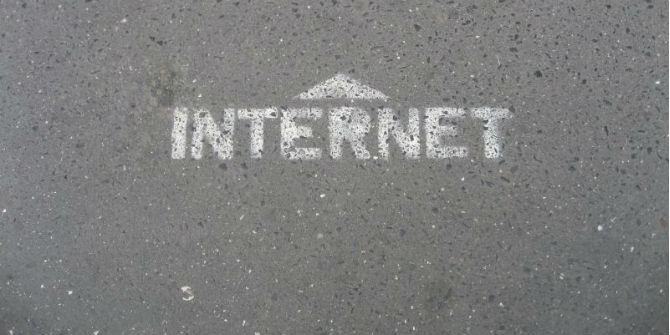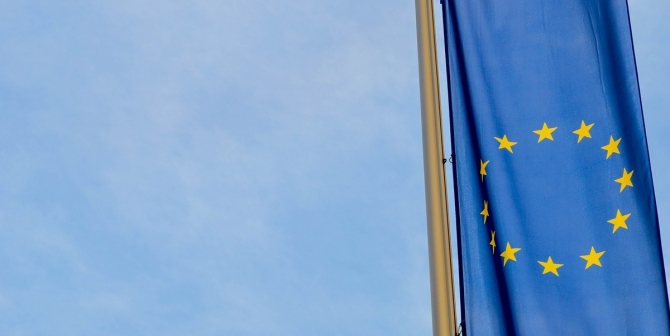“Ireland abortion poll: Facebook to block foreign ads” read a BBC News headline dated May 8th 2018, just over two weeks before Irish people would vote in a historic referendum to liberalise their abortion laws. This unprecedented policy change was followed the next day with an announcement from Google, who decided to go a step further and ban all political ads related to the Eighth Amendment referendum for the remainder of the campaign. While little is known about why exactly these major tech companies took such steps, transparency campaigners, journalists and others had been working to expose foreign interference, disinformation and voter manipulation through online advertising and microtargeting on digital platforms.
One such effort was that of The Transparent Referendum Initiative, of which I am a co-founder. TRI is a volunteer-led, civic initiative which set out to bring online ads into the public domain so that they are open and subject to scrutiny. In the aftermath of Brexit and the US Presidential Election, questions are being asked retrospectively about digital threats to democracy and the impact of online advertising. TRI wanted to make this information available to voters as it was happening, not after the vote when it would arguably be too late.
We took action to highlight the problem in real time and to call for reform and regulation.
TRI partnered with Who Targets Me and worked with more than 600 volunteers across Ireland to build the world’s first real-time, open database of digital ads during a live political campaign. We collected 1535 Facebook ads from 317 different advertisers or Facebook pages. The full set of ads that we identified is available here.
Soon after we launched the initiative in February 2018, we were able to demonstrate instances where organisations based outside Ireland were spending money on Facebook to target Irish people to potentially influence how they would vote on May 25th. In addition, we exposed a number of ads from untraceable Facebook pages which had little or no information about who was behind them, where they were located or who was paying for the ads. Some of the ads from untraceable pages were used to mislead voters, discredit political figures and groups, mimic official or neutral information sources, gather voter data and/or share disturbing images.
Ireland does not have a permanent electoral commission, or any regulatory body that has oversight of expenditure during referendums, let alone of digital campaigning. Our electoral laws are from the 1990s and do no reflect modern day campaigning or advances in technology. As such, social media has been referred to as the wild-wild west of campaigning.
Under the outdated electoral laws, foreign actors cannot legally make a donation to a political campaign in Ireland but, prior to the Facebook ban, nothing prevented those same actors spending any amount of money on Facebook ads to ensure that information aimed at influencing how a person votes appeared in front of Irish voters via their social media accounts. By banning foreign ads, Facebook attempted to fill the lacuna in the legislation. Speaking to the New York Times, Facebook’s Head of Public Policy for Ireland, Niamh Sweeney, said the company did so after finding some worrisome activity and “felt it was the right move to make”.
Google said that the decision to ban all political ads was part of their efforts to uphold Were they seeing something that led them to believe that there was a threat to that election integrity? Even after these attempts, digital platforms were still saturated with advertising. In many cases the advertiser remained untraceable and manipulation of voters was still a threat. Online advertising spend simply moved to other providers, such as Adobe (as we saw in screengrabs that were sent to us of adverts on online platforms).
This therefore begs the question, should we be relying on self-regulation by tech companies to ensure transparency of online advertising during political campaigns?
Voters value free and fair elections. It’s therefore time for our Governments to step up and regulate digital campaigning so that people have access to accurate, reliable information from identifiable sources. In Ireland, this could be achieved by having a permanent electoral commission, empowered and resourced to monitor and report on digital campaigning during elections and referendums. Crucially, it could ensure that relevant information is made available to voters in real time during campaigns.
The “Digital Campaigning: Increasing Transparency for Voters” report produced by the Electoral Commission in the UK found that 42% of reported spending by campaigners in 2017 went on digital advertising, up from 1.7% in 2014. It made a series of recommendations including a call for it to be given stronger powers so that it can obtain and make information available in real time.
This is a global issue. Ahead of the midterms in the US in November, increased efforts are being made by Facebook, Twitter, Google and others at regulating political ads on their platforms. On this side of the Atlantic, a “High Level Expert Group” set up by the European Commission to advise on policy initiatives to counter disinformation online opted to recommend self-regulation rather than legislation, but stopped short of stating how this would be enforced. As we’ve seen during the abortion referendum campaign, self-regulation alone is insufficient. With European Parliament elections due in May next year, and with the rise of populism in Europe, the EU-28 should be looking at what steps need to be taken in order to ensure transparency for voters in the digital age.
It’s worth stating that I am an advocate of digital campaigning and I believe that it can play a positive role in the democratic process and contribute to the public sphere. In fact, I was the Social Media Director for Yes Equality, the civil society campaigning group that advocated for a Yes vote in the Irish marriage equality referendum in 2015. I witnessed first-hand the power of using tech to mobilise, organise and communicate with Irish voters and to drive offline action. But, as new techniques are reducing confidence in the integrity of elections and referendums, we absolutely must take all necessary steps to reduce digital threats to democracy.
This article gives the views of the author and does not represent the position of the LSE Media Policy Project blog, nor of the London School of Economics and Political Science.






